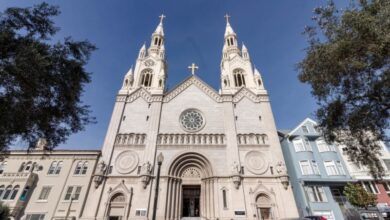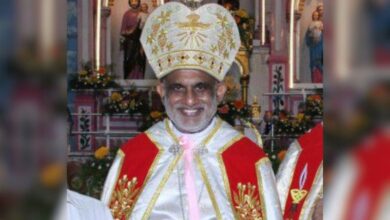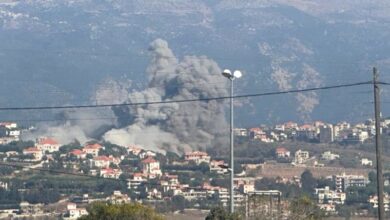PHOTOS: Nearly 5,000 brave heat for largest Eucharistic procession in Denver history
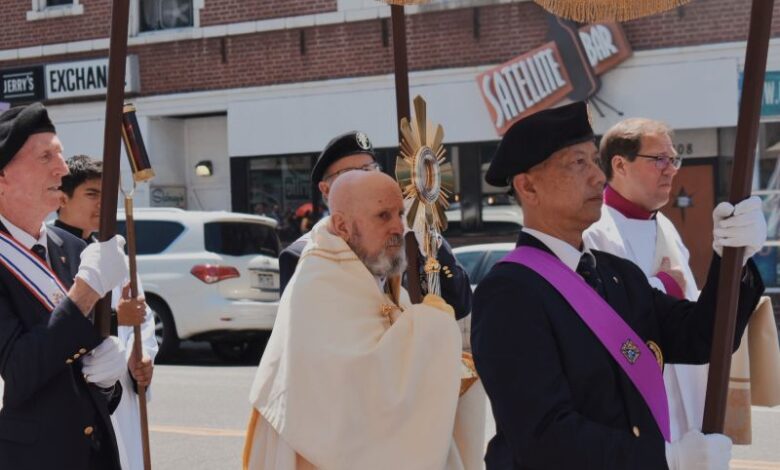
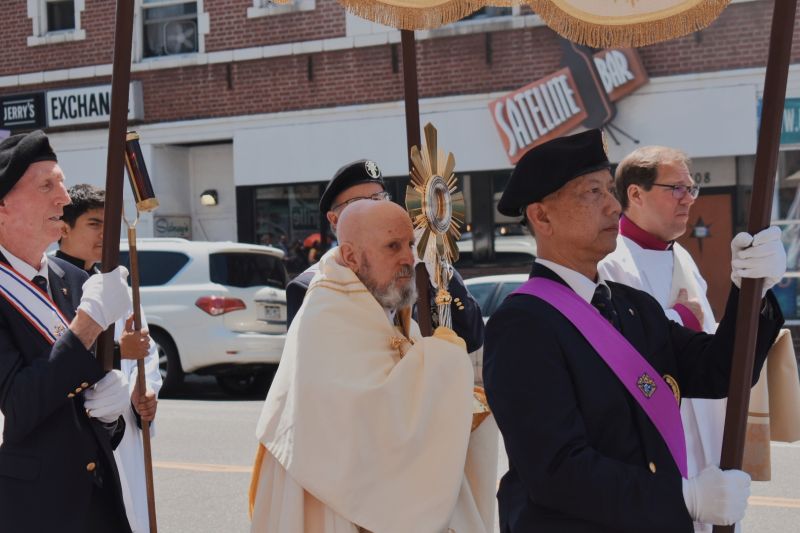 Archbishop Samuel Aquila leads the Eucharistic procession down Colfax Avenue in Denver on June 9, 2024. / Credit: Kate Quiñones/CNA
Archbishop Samuel Aquila leads the Eucharistic procession down Colfax Avenue in Denver on June 9, 2024. / Credit: Kate Quiñones/CNA Denver, Colo., Jun 11, 2024 / 17:30 pm (CNA).
In the glaring hot sun, nearly 5,000 filled the streets of downtown Denver in a Eucharistic procession on Sunday, June 9, in what was likely the largest Eucharistic procession in the city’s history.
The most recent stop in the Junipero Serra Route of the National Eucharistic Pilgrimage, the attendees of the procession increased the population of downtown Denver, which is about 16,000, by nearly a third for the day.
Led by Archbishop Samuel Aquila of Denver, the procession began with a Mass at the Cathedral Basilica of the Immaculate Conception on Colfax Avenue and Logan Street, where attendees were lining the walls, cramming the aisles, and filling even the baptistry area around the baptismal font. Voices boomed across the cathedral as participants prayed the Mass in unison.
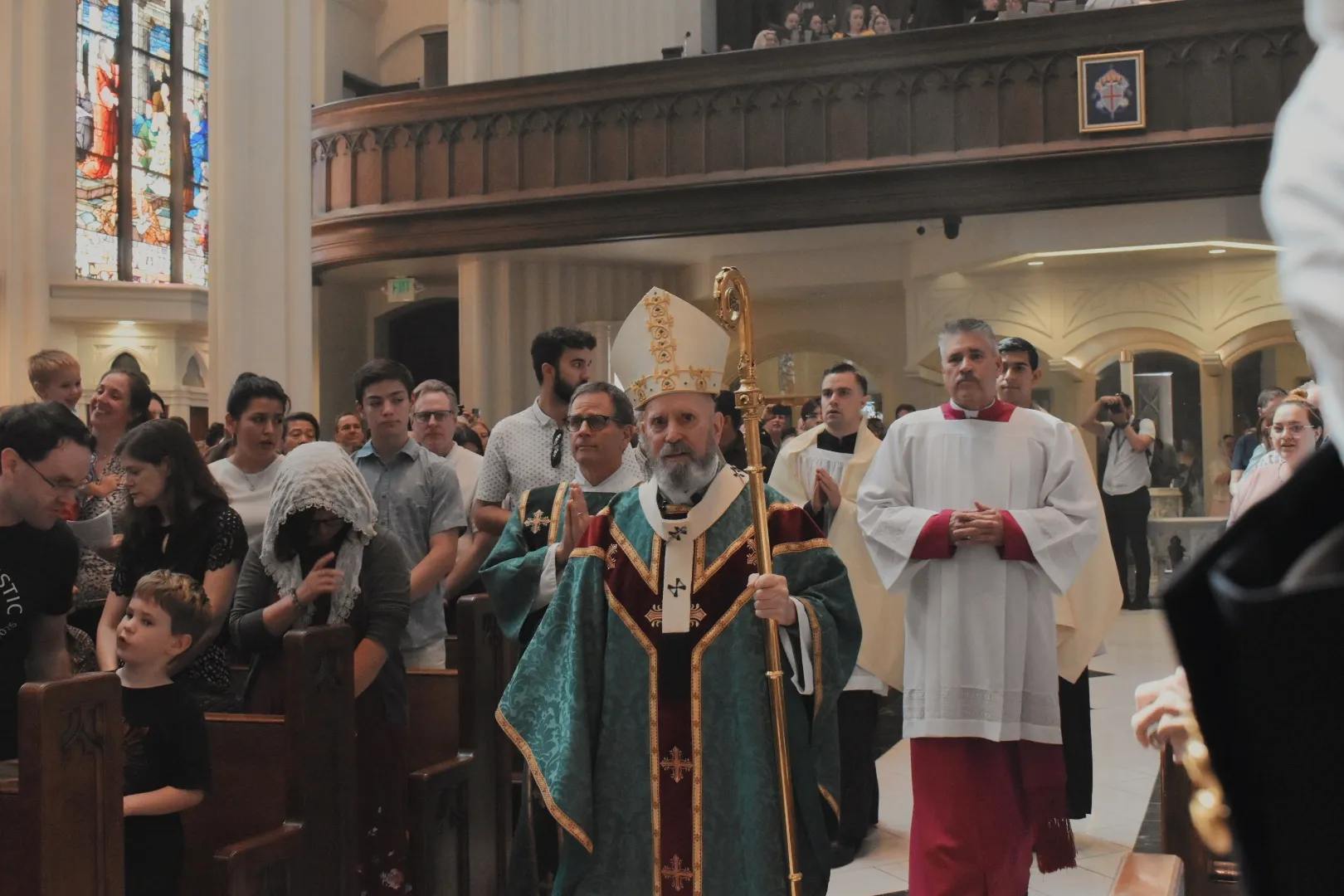
“Every time you and I gaze upon the Eucharist, every time you and I see the Eucharist, what we see is breath and wine,” Aquila said in his homily. “But what we believe is [strange to the world]. It is truly the body, blood, soul, divinity of Jesus Christ.”
Aquila encouraged attendees to consider what lens through which they look at the world, whether it’s ideological or through “the eyes of Jesus.”
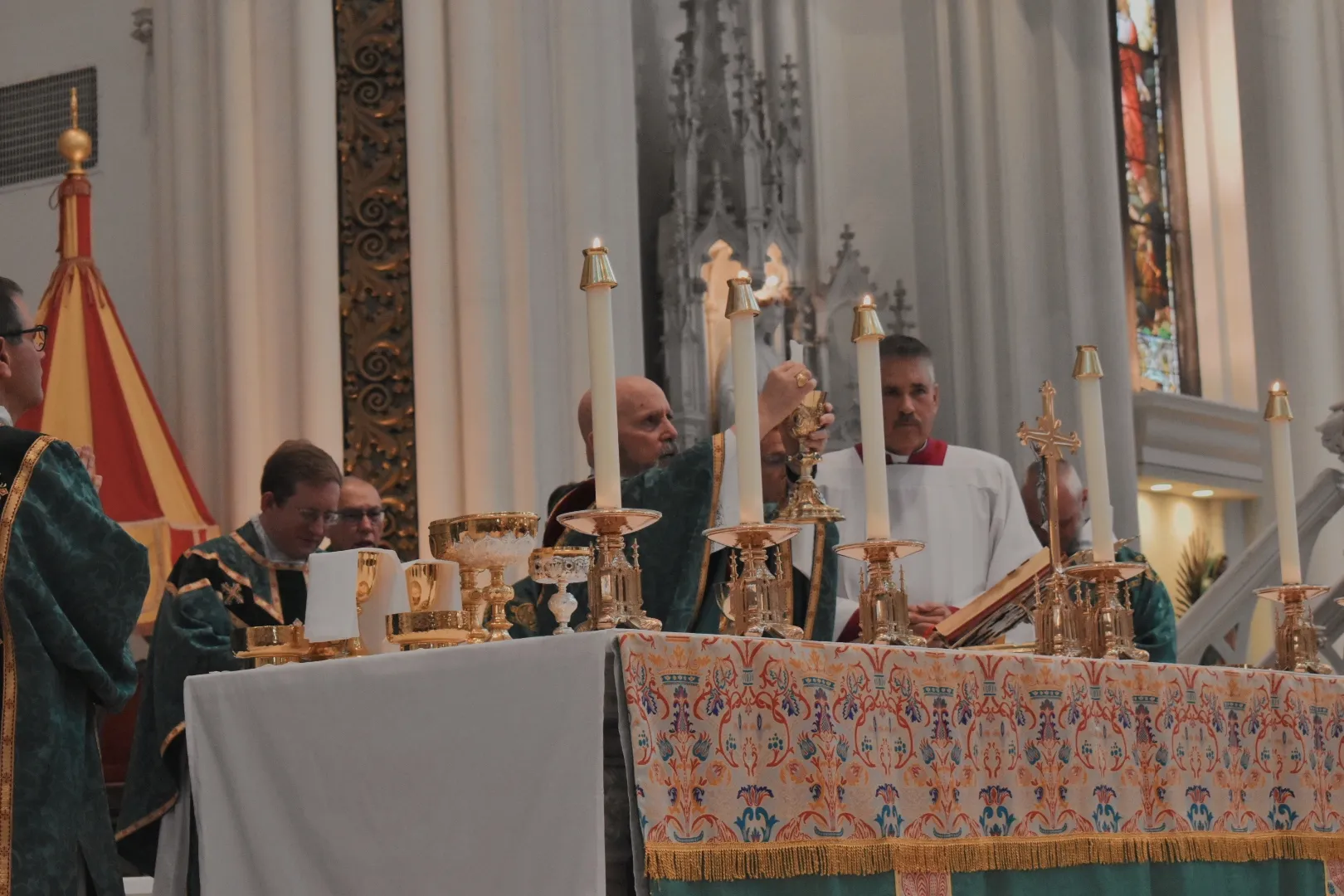
As the archbishop, bishop, priests, seminarians, and altar servers processed out with the Eucharist, attendees in the back squeezed to the side and filtered out the side doors to make room for Jesus to pass through.
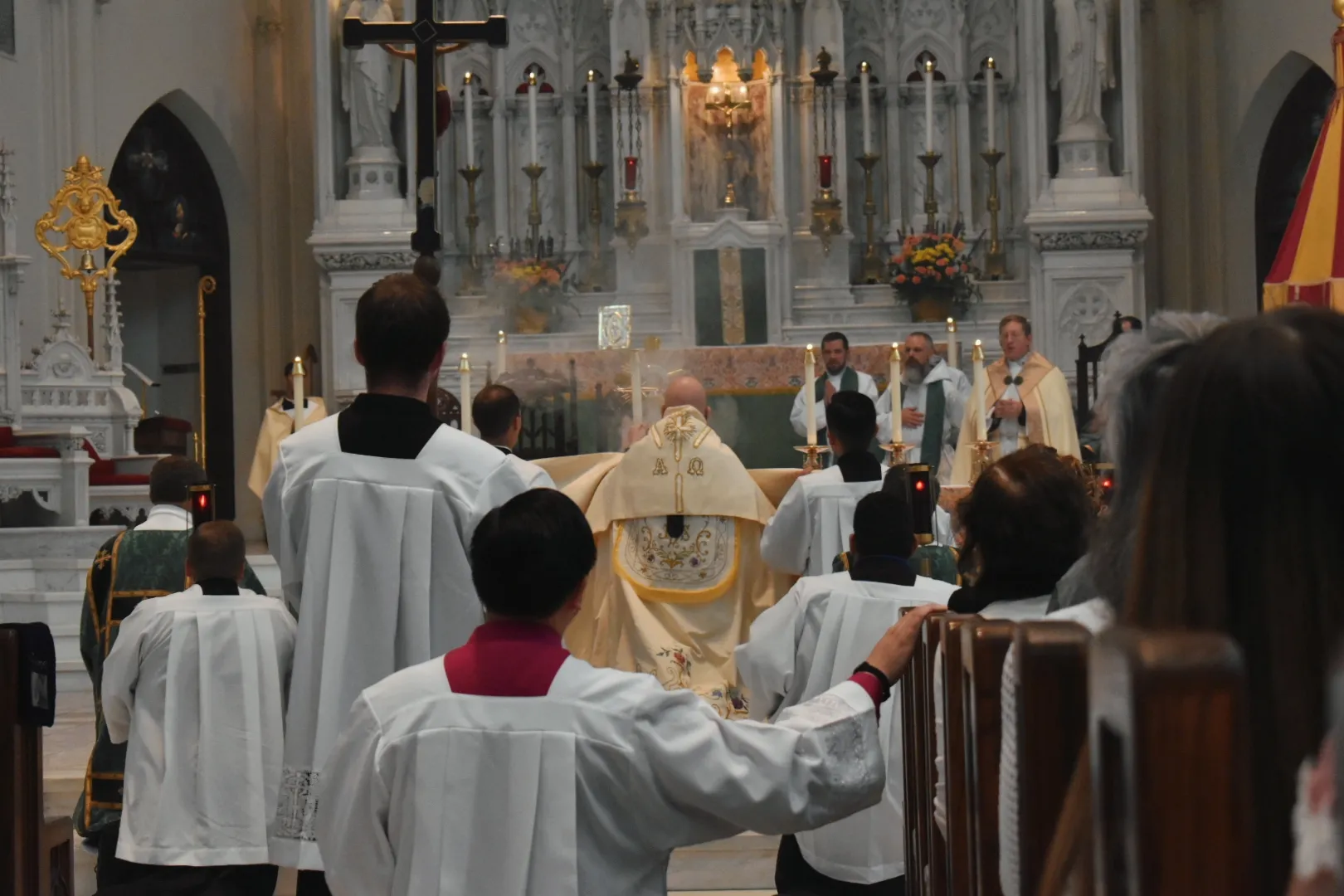
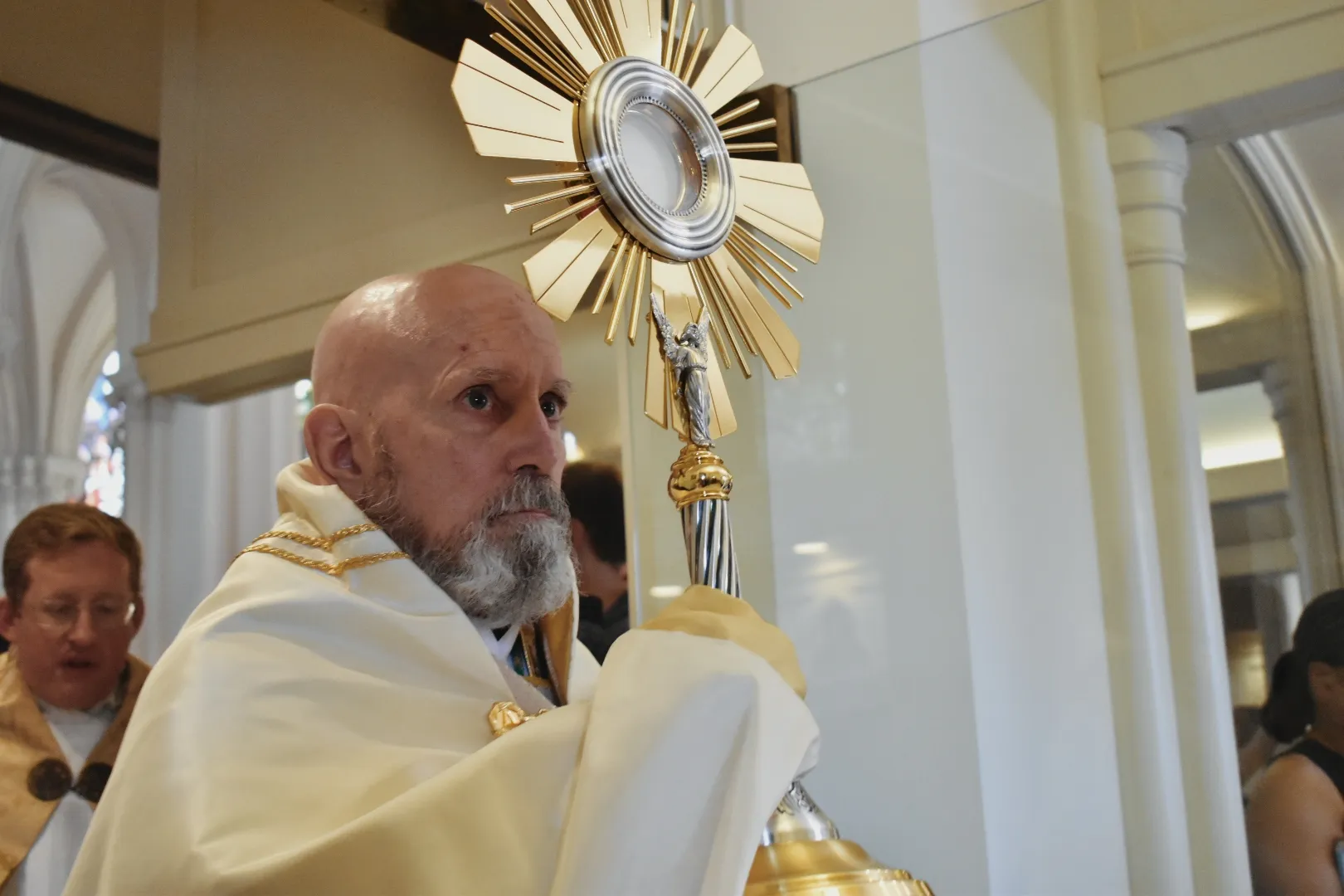
Four Knights of Columbus carried a canopy over the monstrance, while the many priests leading took turns carrying the monstrance. Two security guards manned the front of the parade while police blocked the flow of traffic, allowing participants to flood into Denver’s normally crowded streets.
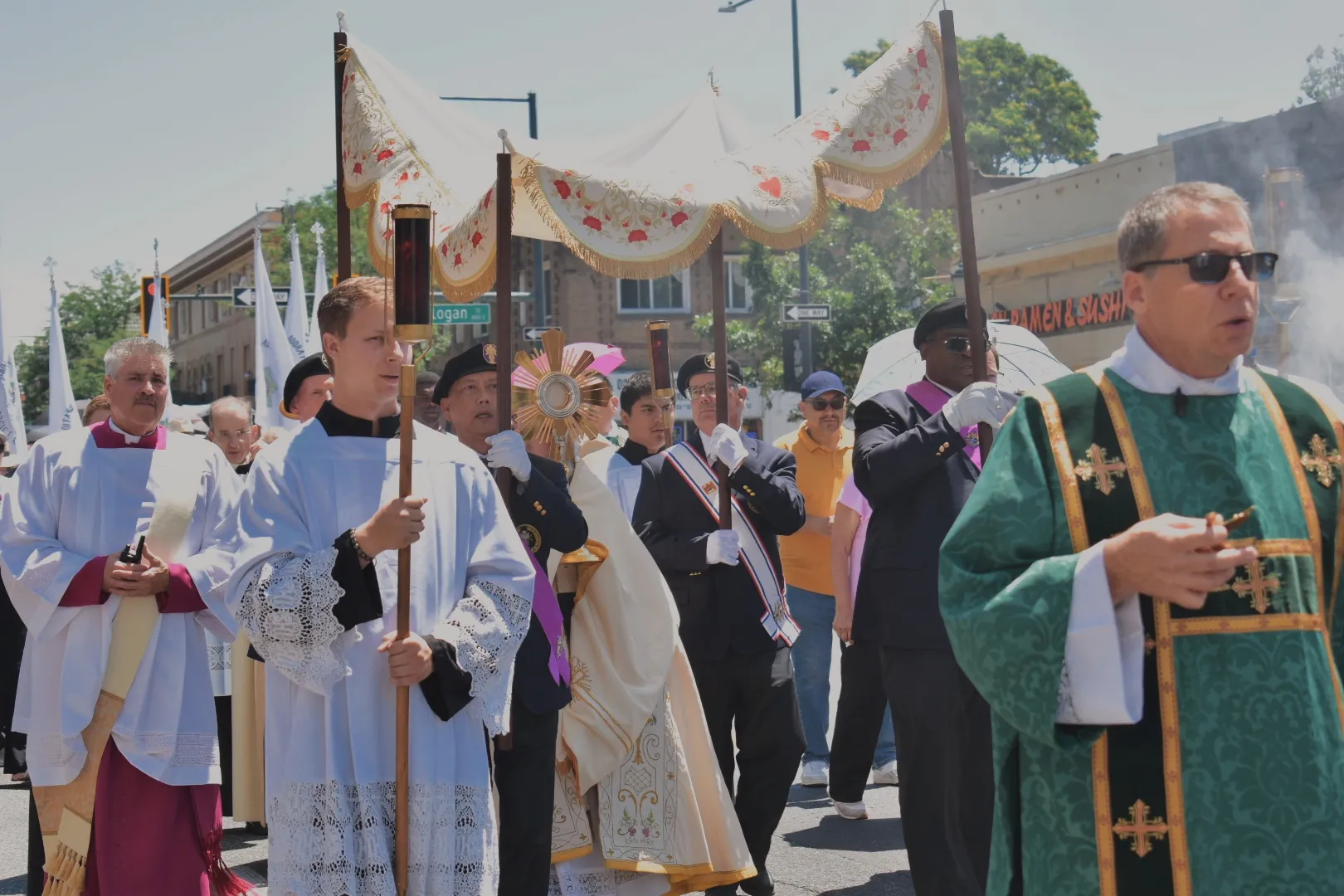
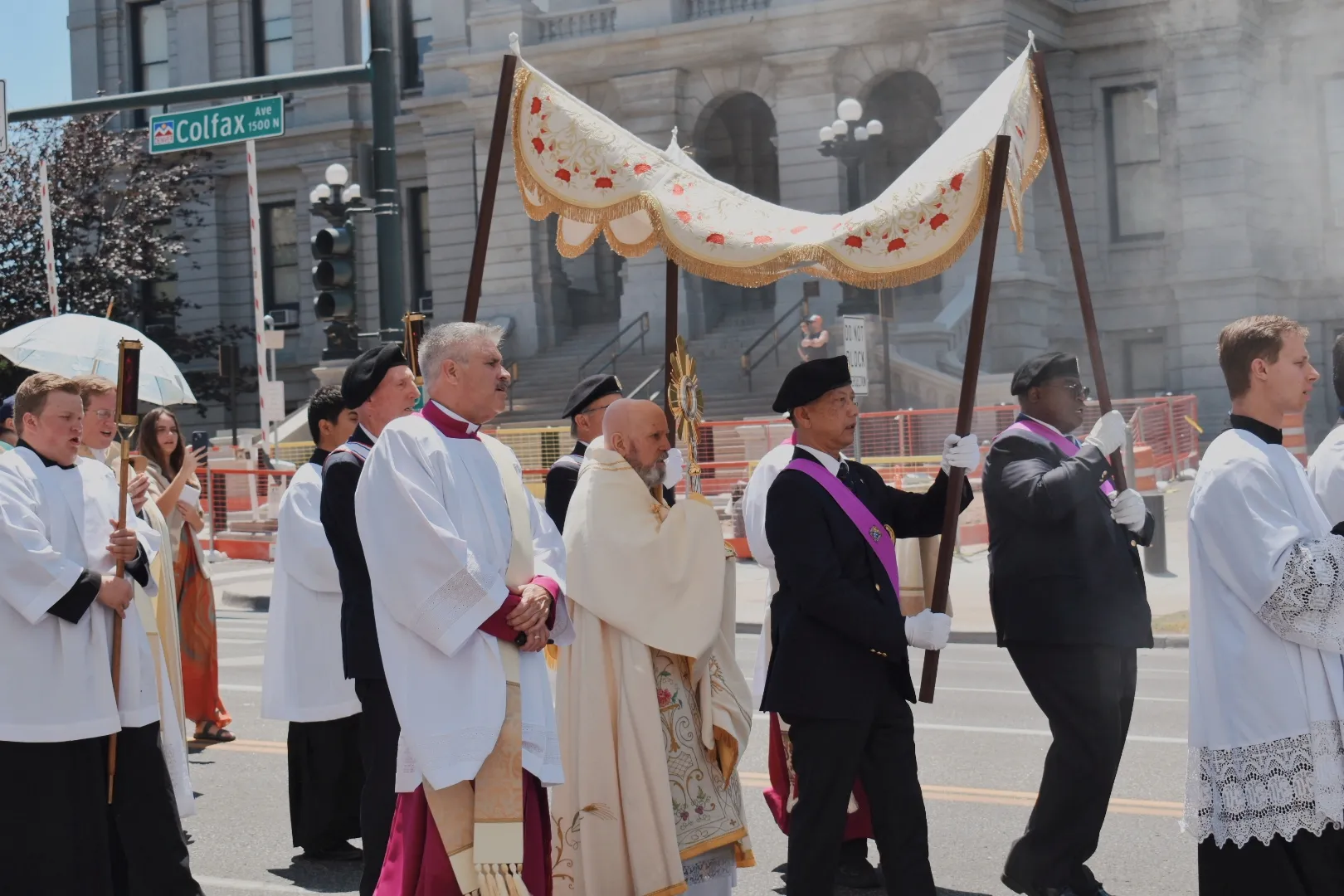
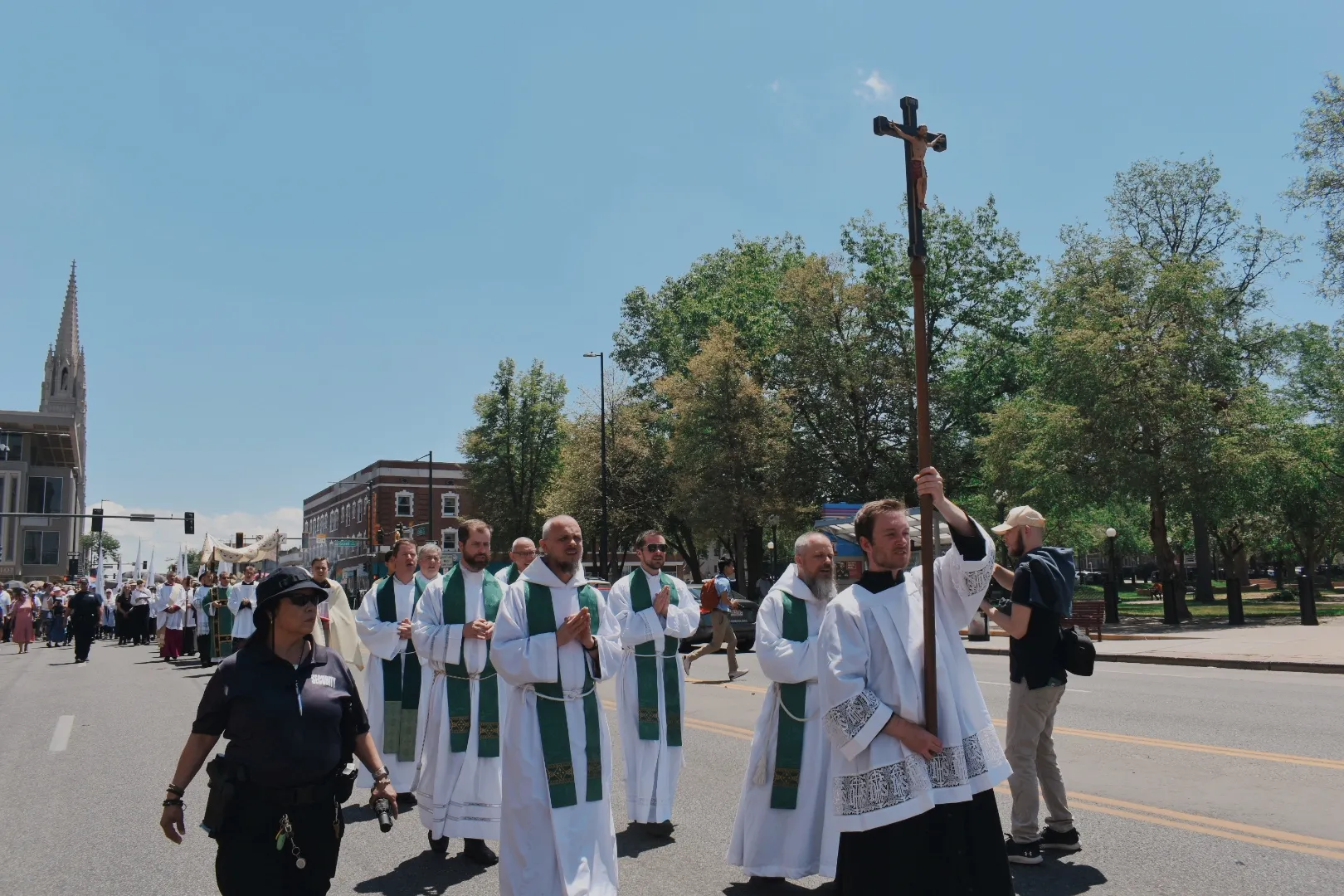
Despite the shock to the ordinary flow of traffic, onlookers mostly viewed the procession with respect or, at worst, a quiet confusion.
One participant, Regina Gravrok, a 22-year-old who recently moved to Denver, said she noticed people stopping, watching, and taking photos and videos.
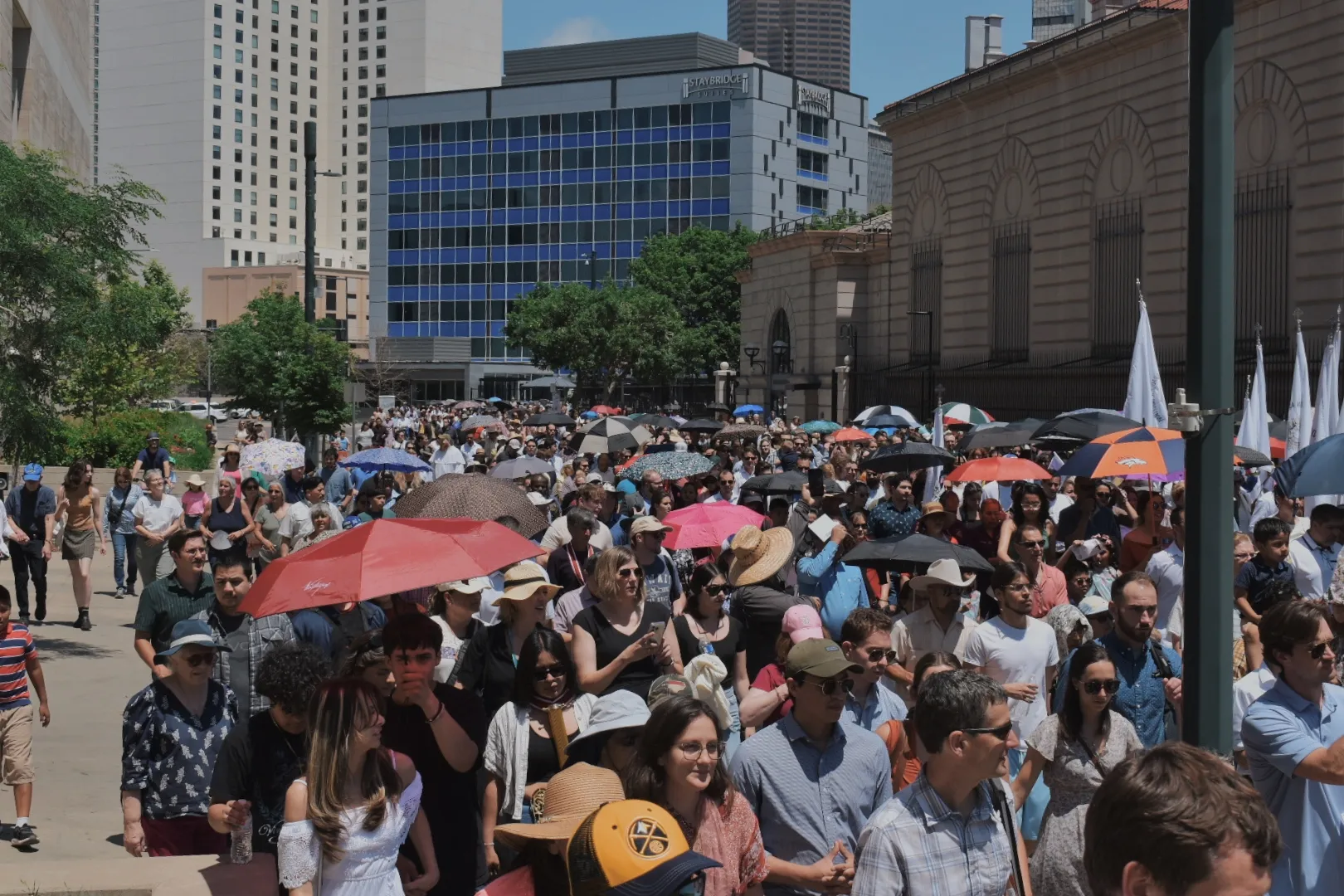
“I never saw any negative reactions,” she said. “There were a few people honking because some people had a ‘Honk for Jesus’ sign — so we got some audience participation that way. But most of the people I saw were just curious.”
“You can’t just look past a large group of people walking downtown, walking behind a gold monstrance,” Gravrok continued. “You notice, and you wonder what it’s about.”
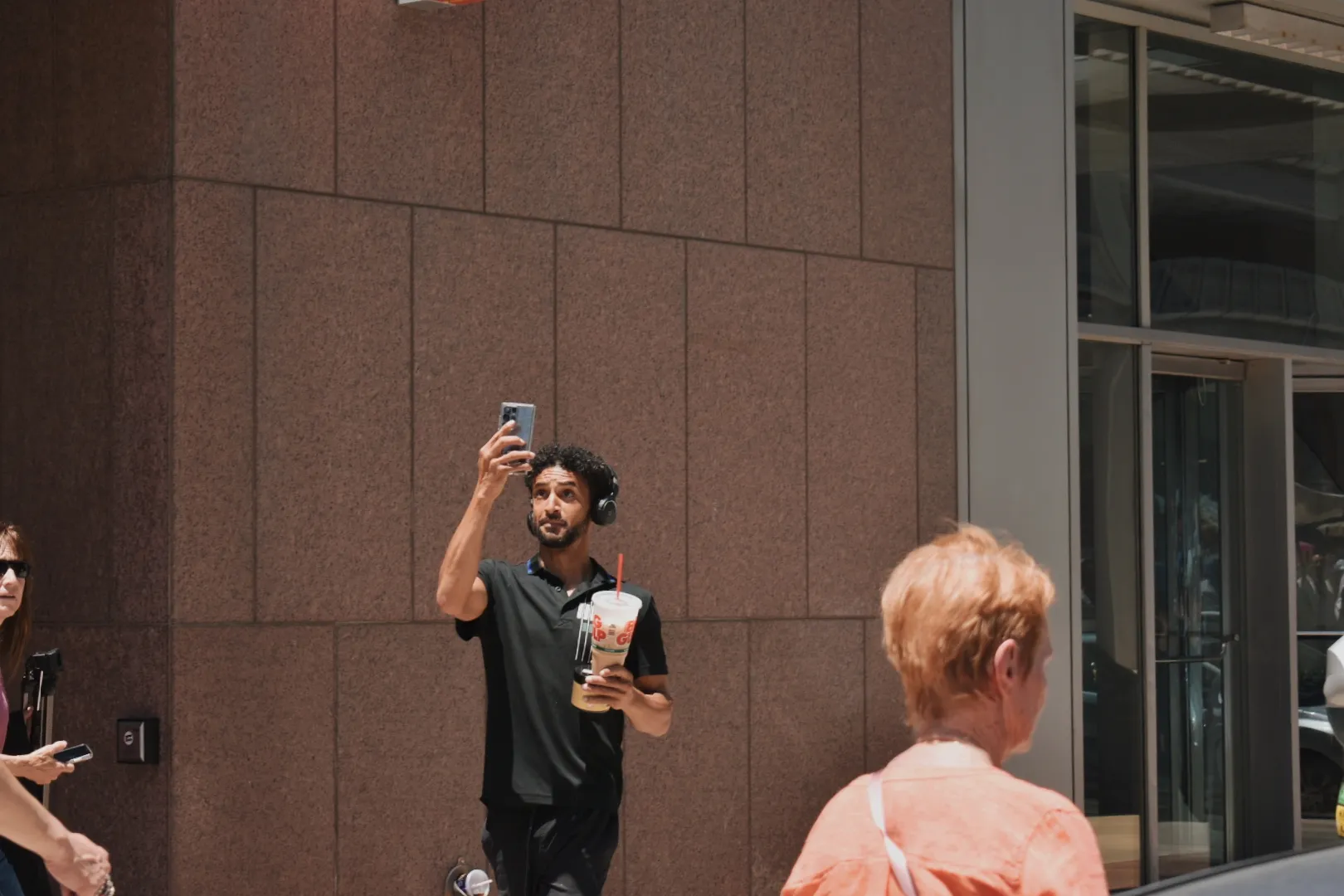
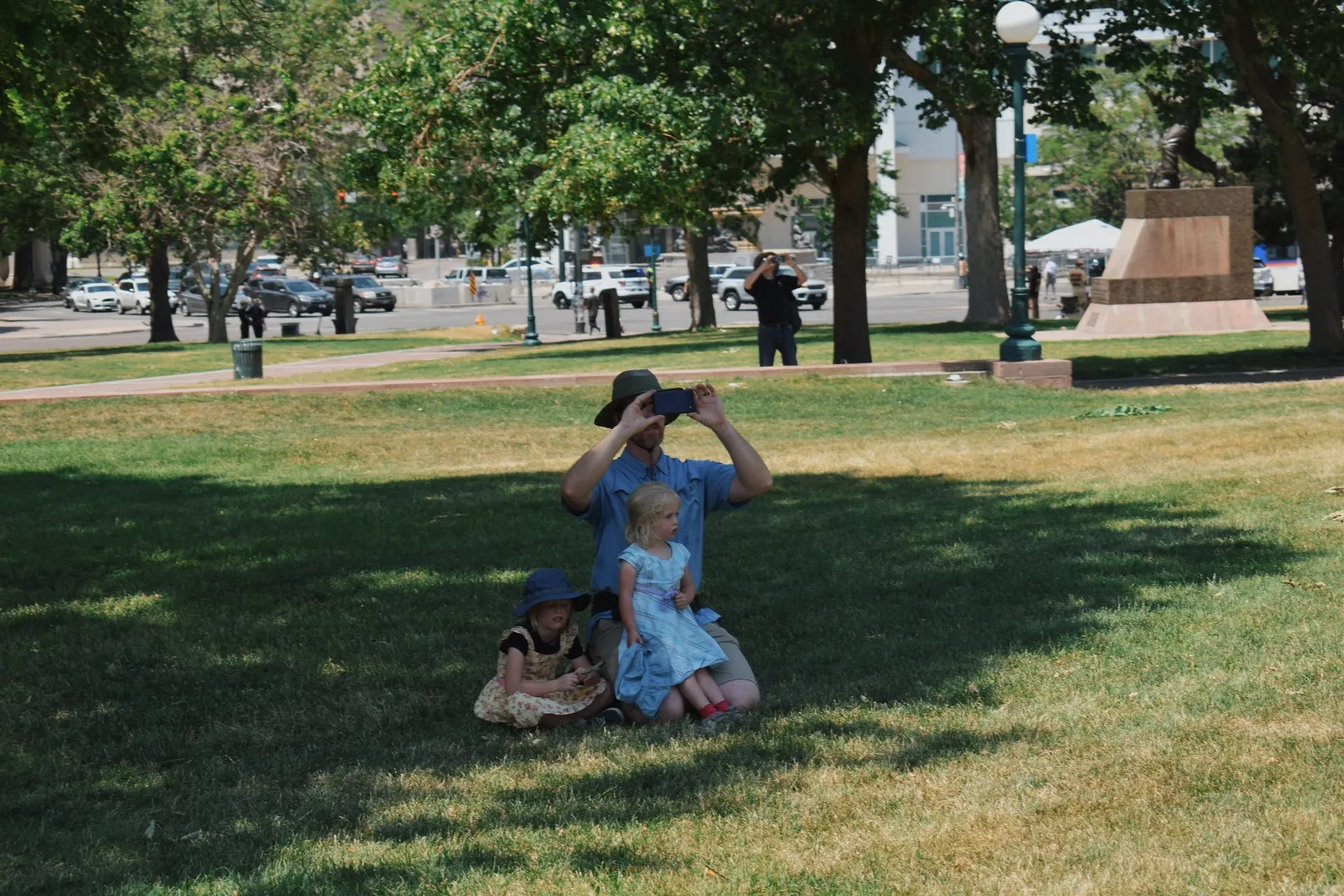
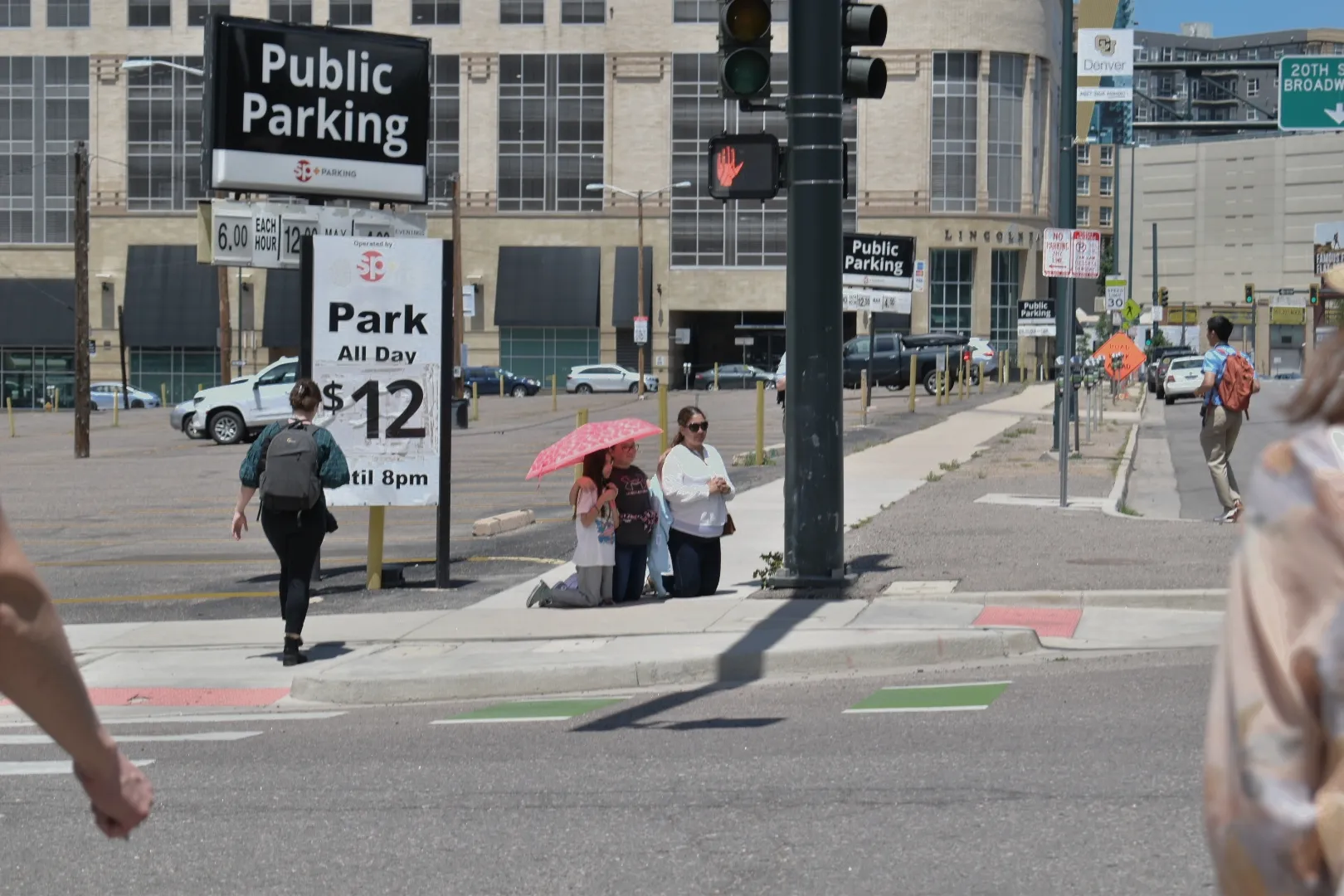
Sister Mary Rose Chinn, a sister of the Handmaids of the Triune God, has been following the Eucharistic pilgrimage from its start in California, camping in state parks along the way as she chases down the Eucharistic pilgrimage van.
“The opportunity of a pilgrimage, for me, is like a microcosm of daily life, where you really have to listen and just trust in God’s providence for the next step,” Chinn told CNA. “You can make your plans … but then you turn your plans over to the Lord and see how he works out the day — that’s how it’s been.”
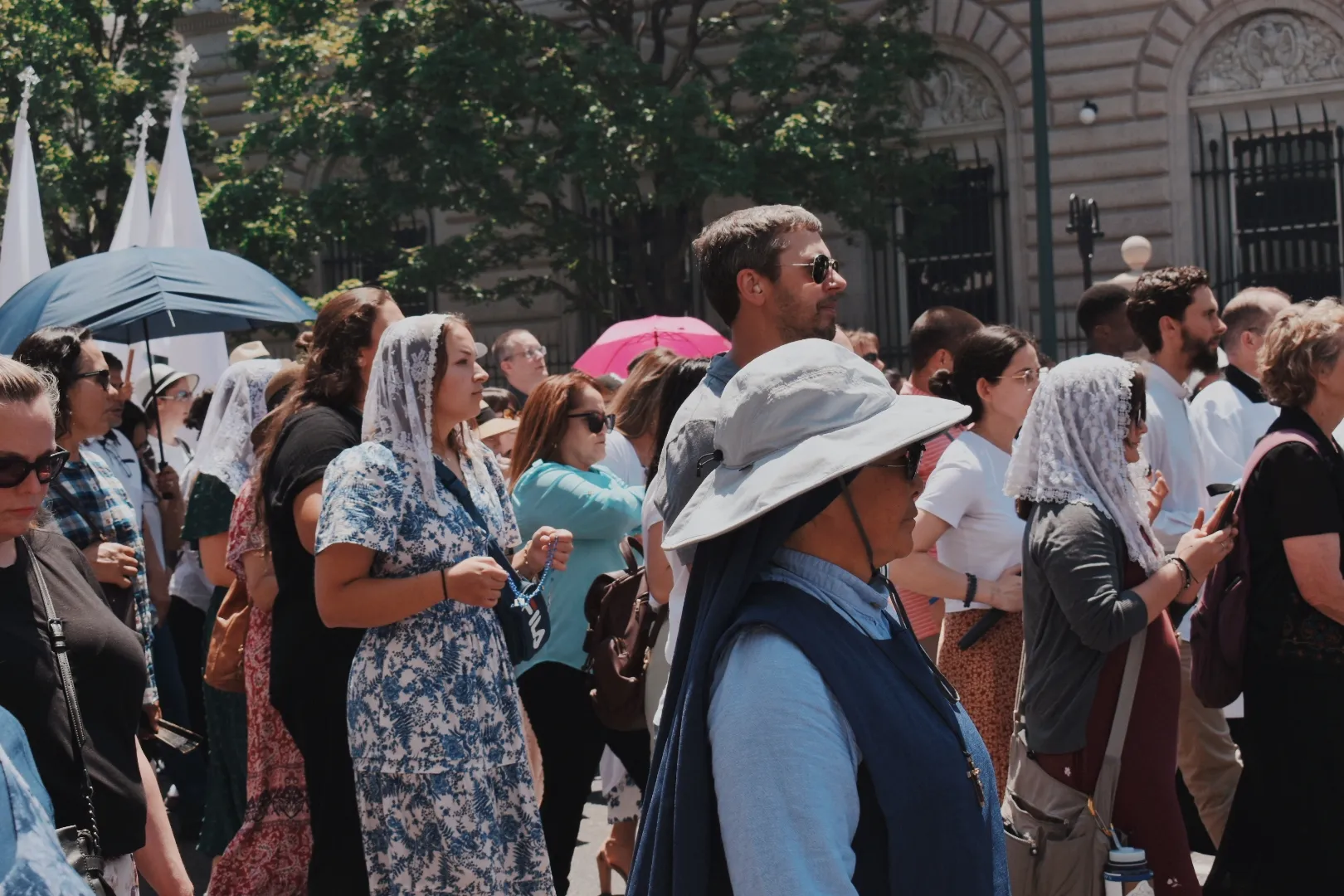
Chinn explained that she has been bringing prayer intentions with her across the many miles of the pilgrimage from her town, Ventura, California, all the way to Denver and onward — and whenever she meets someone new, she offers to pray for them.
Jack Krebs, a “Perpetual Pilgrim” who has spent his summer so far in a van with Jesus and several other Perpetual Pilgrims, said the National Eucharistic Revival inspired him to draw nearer to Christ in the Eucharist.
“I think it just made my prayer become a lot more relational,” he told CNA. “I’ve been coming to know the gift that the Eucharist is a lot deeper.”
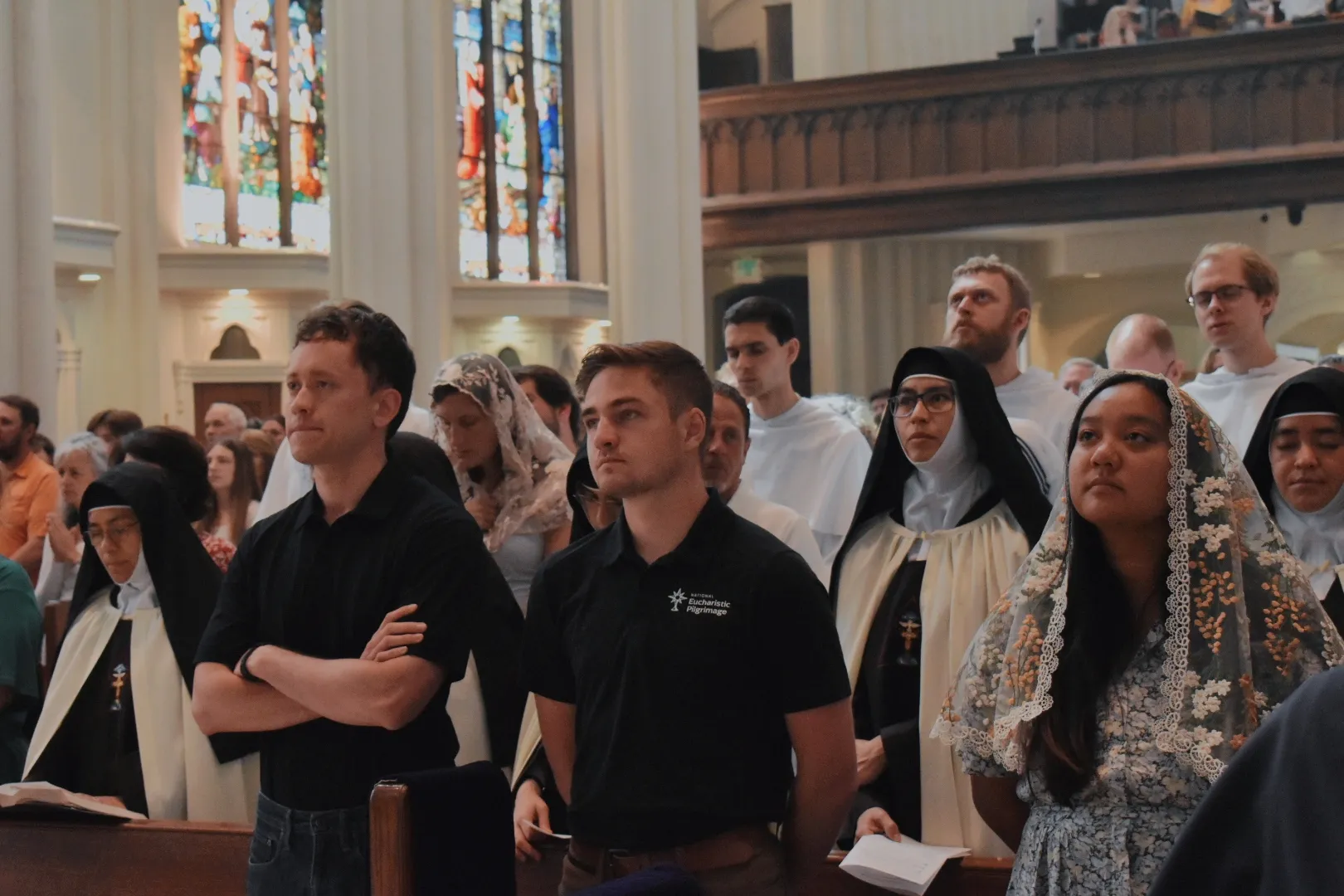
Over his time on pilgrimage, he saw a fruit of bringing Jesus across the nation when a photographer who was following the pilgrimage for a week shared that he was going to start RCIA that week.
“It’s not just people showing up for this nationwide movement being like, ‘Yay,’ and then going home and going on with life,” Krebs said.
Participants sang hymns in English, Spanish, and Latin as the Eucharist made its way through Denver.
“For this is God, the very God who hath both men and angels made,” the participants sang as they followed the Eucharist along the street.
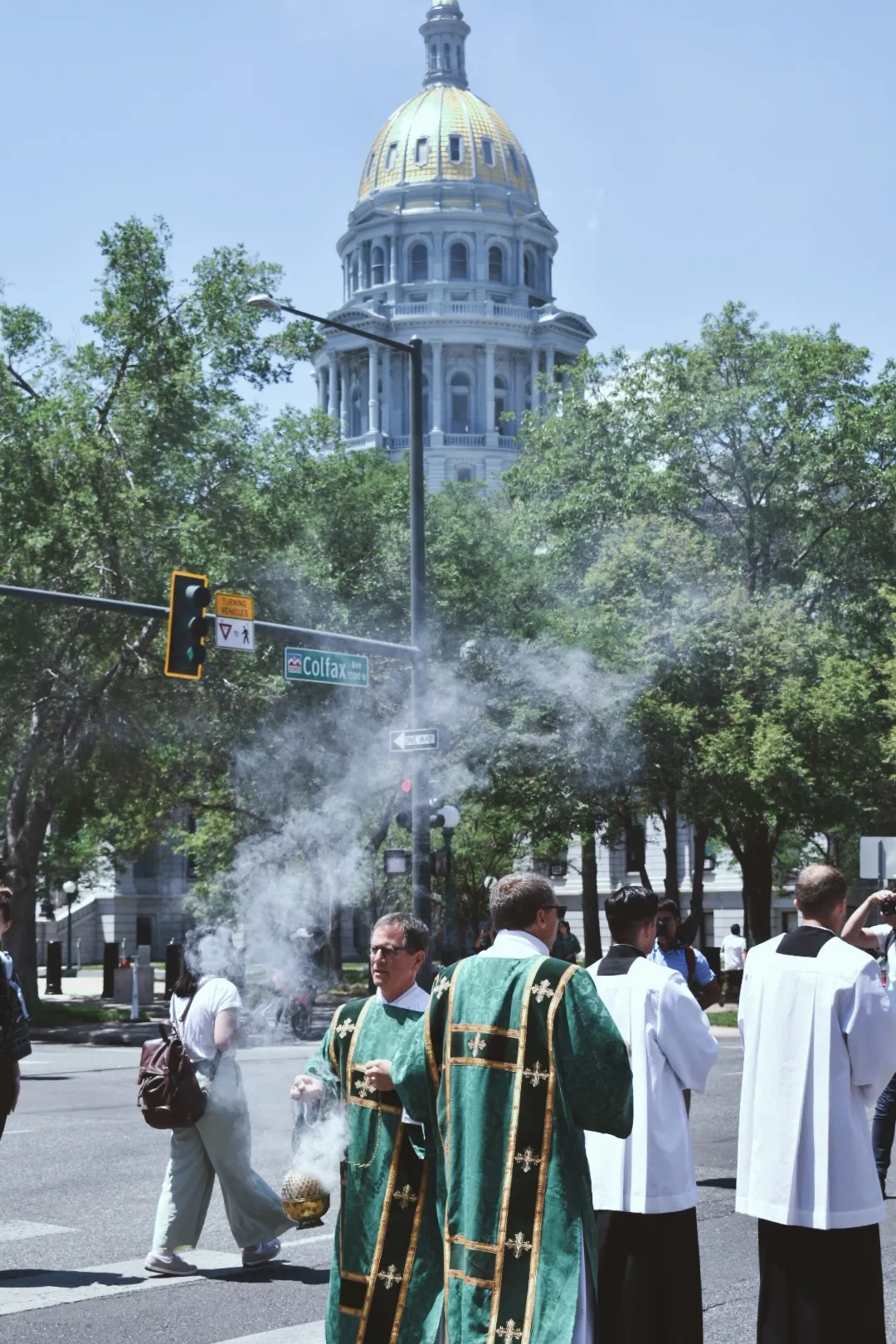
But for much of the procession, people were simply quiet, bearing the hot day, carrying their prayer intentions with them, or having meaningful conversations and offering to pray for one another.
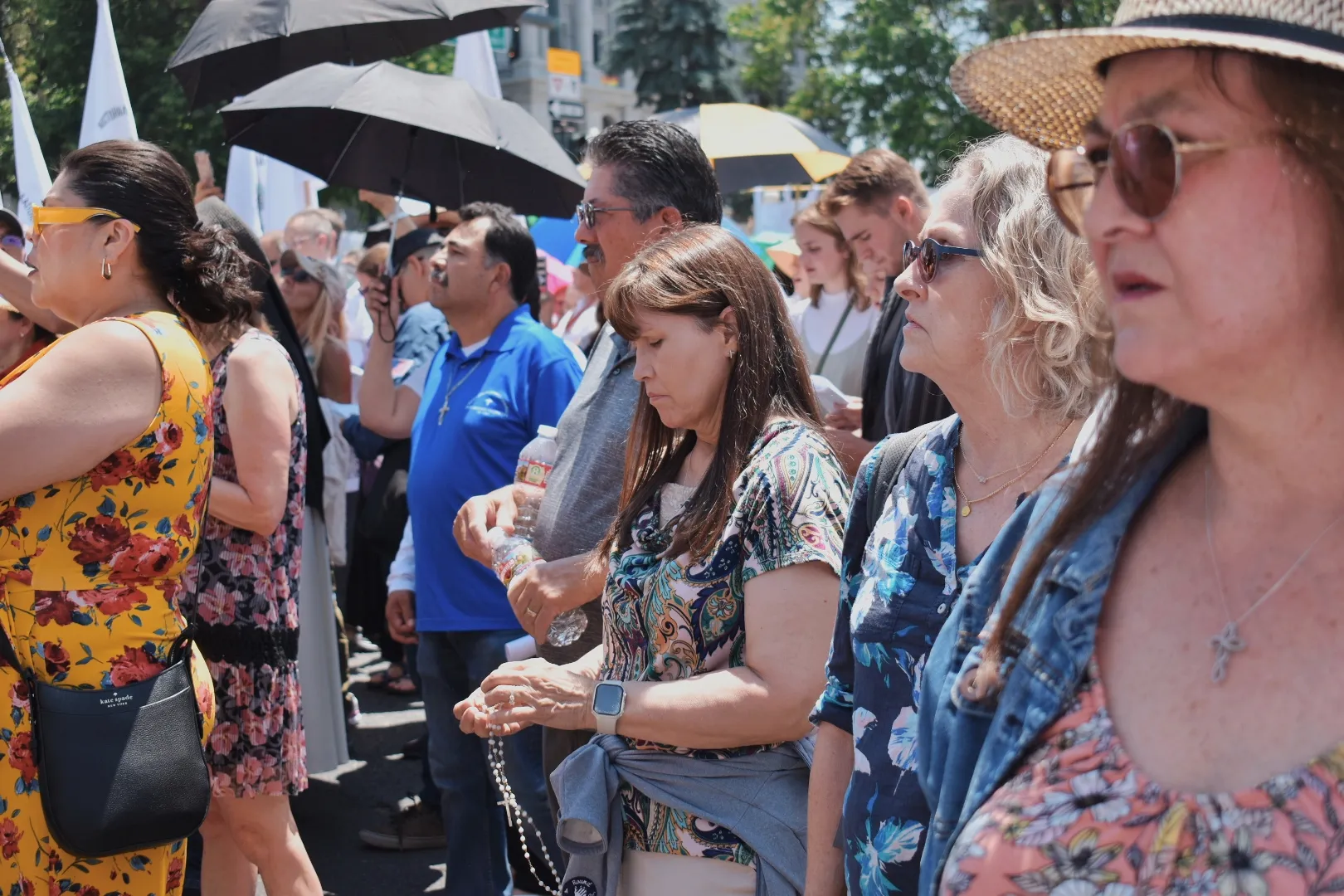
More than halfway through, the procession stopped in front of the Colorado state capitol building, over which hung a pride flag. The archbishop raised the monstrance in Benediction as attendees stopped to watch and pray.
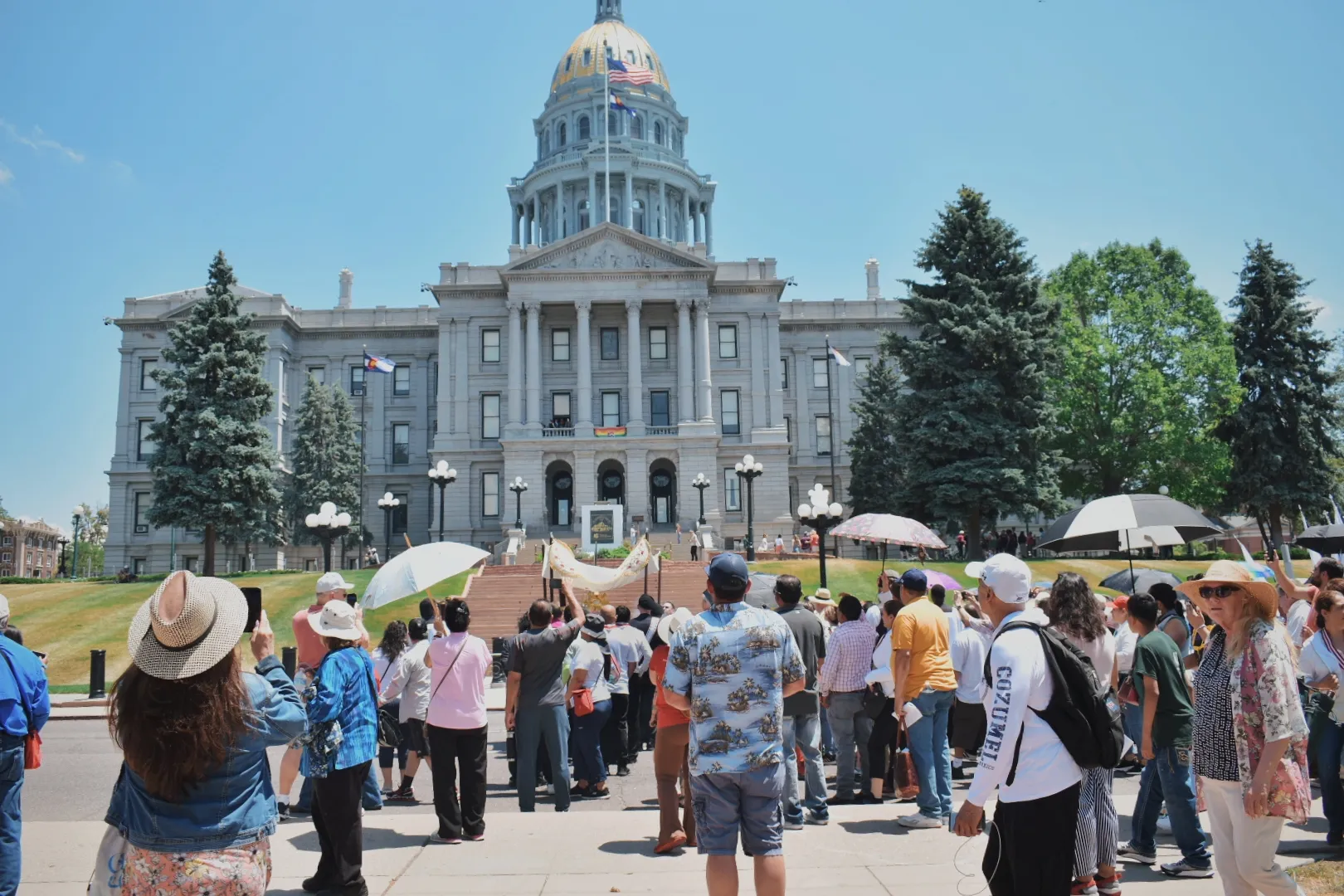
Finally, the pilgrimage reached Holy Ghost Church, a church of mosaic and marble. The original parish building was dedicated in 1924. One hundred years later, the parish, now a Spanish and Italian Renaissance-inspired building, stands firm, guarded by sentinel skyscrapers as it faces the buzz of daily traffic.
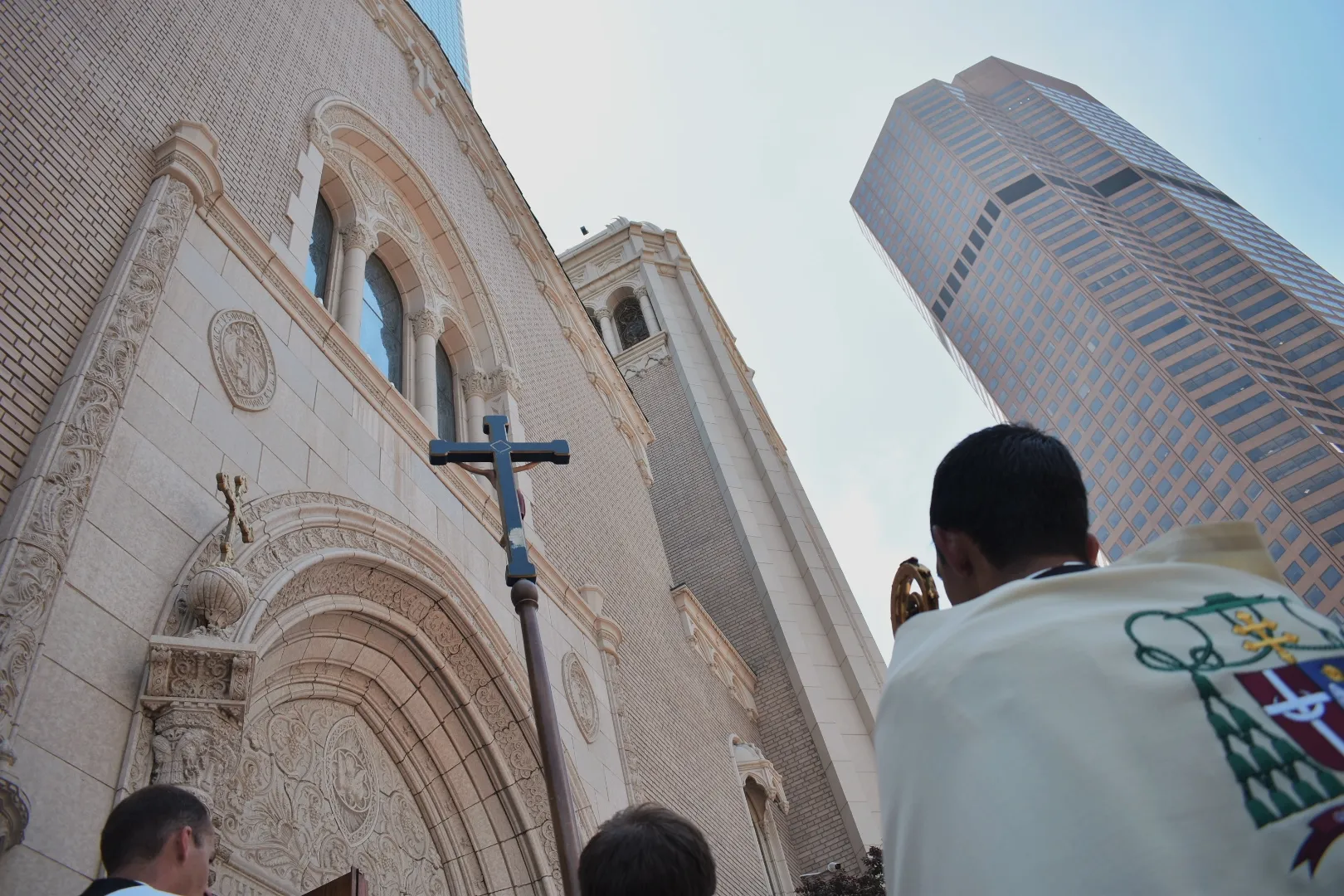
Holy Ghost participants awaited the approaching monstrance outside the Church, patiently awaiting Christ’s arrival.
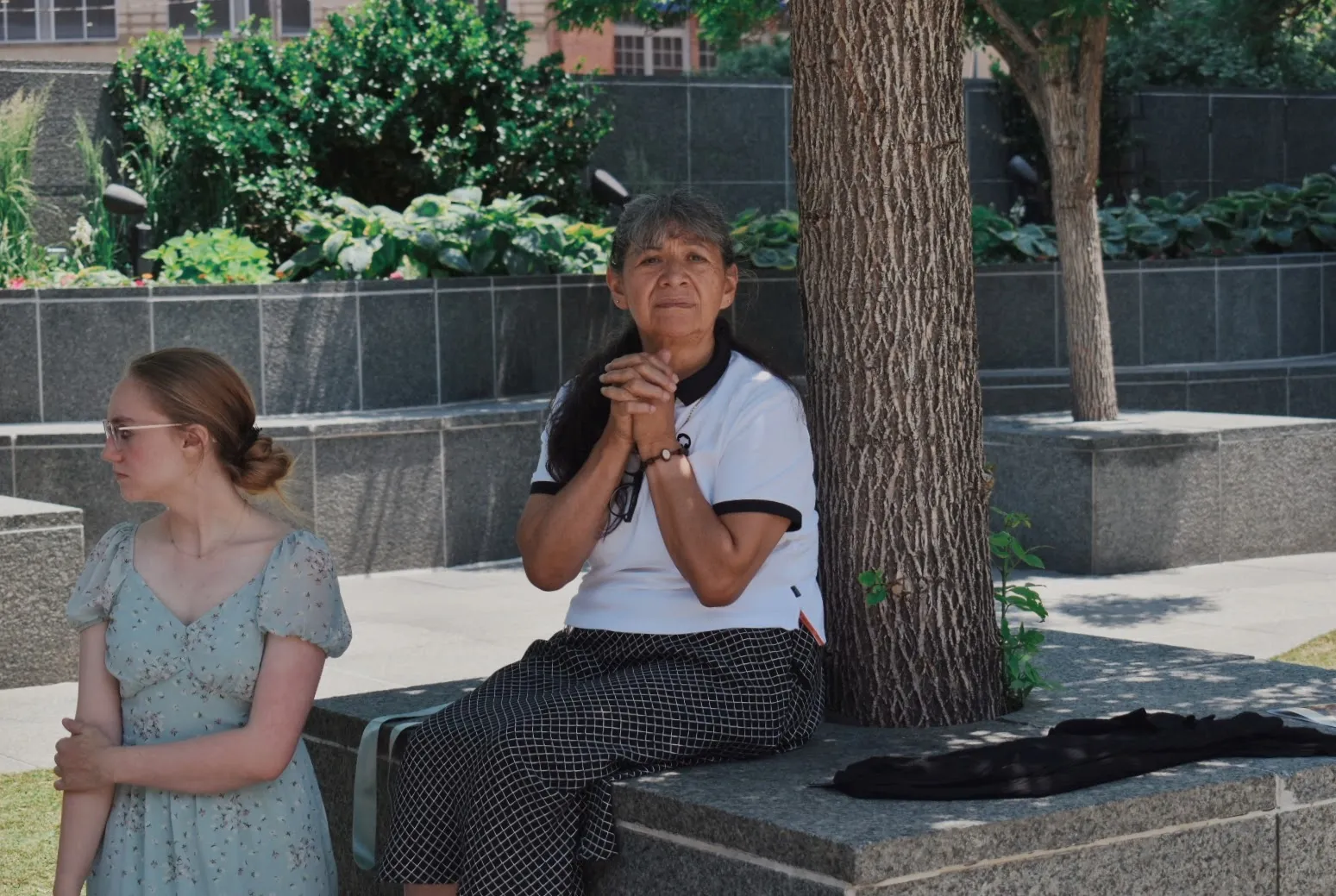
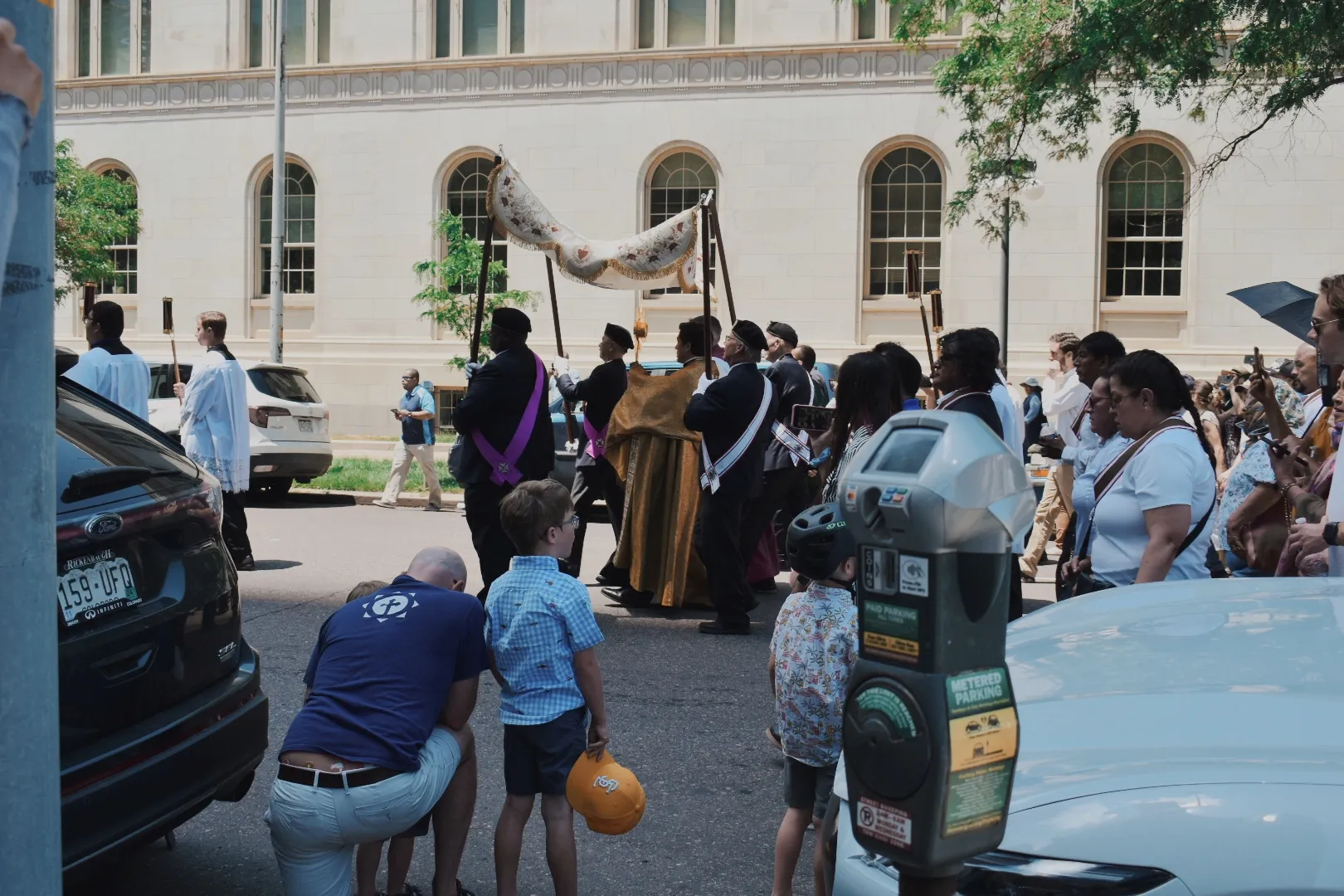
After the long day, the weary sunburned pilgrims received Benediction from Archbishop Aquila, then slowly drifted into the cool building, praying quietly in adoration.
“It was really beautiful to feel the difference between the discomfort of walking on the procession and then the comfort of stepping into the church, out of the sun, into the coolness, and then resting in adoration for a little bit,” Gravrok noted. “That contrast, I think, made it even more beautiful.”
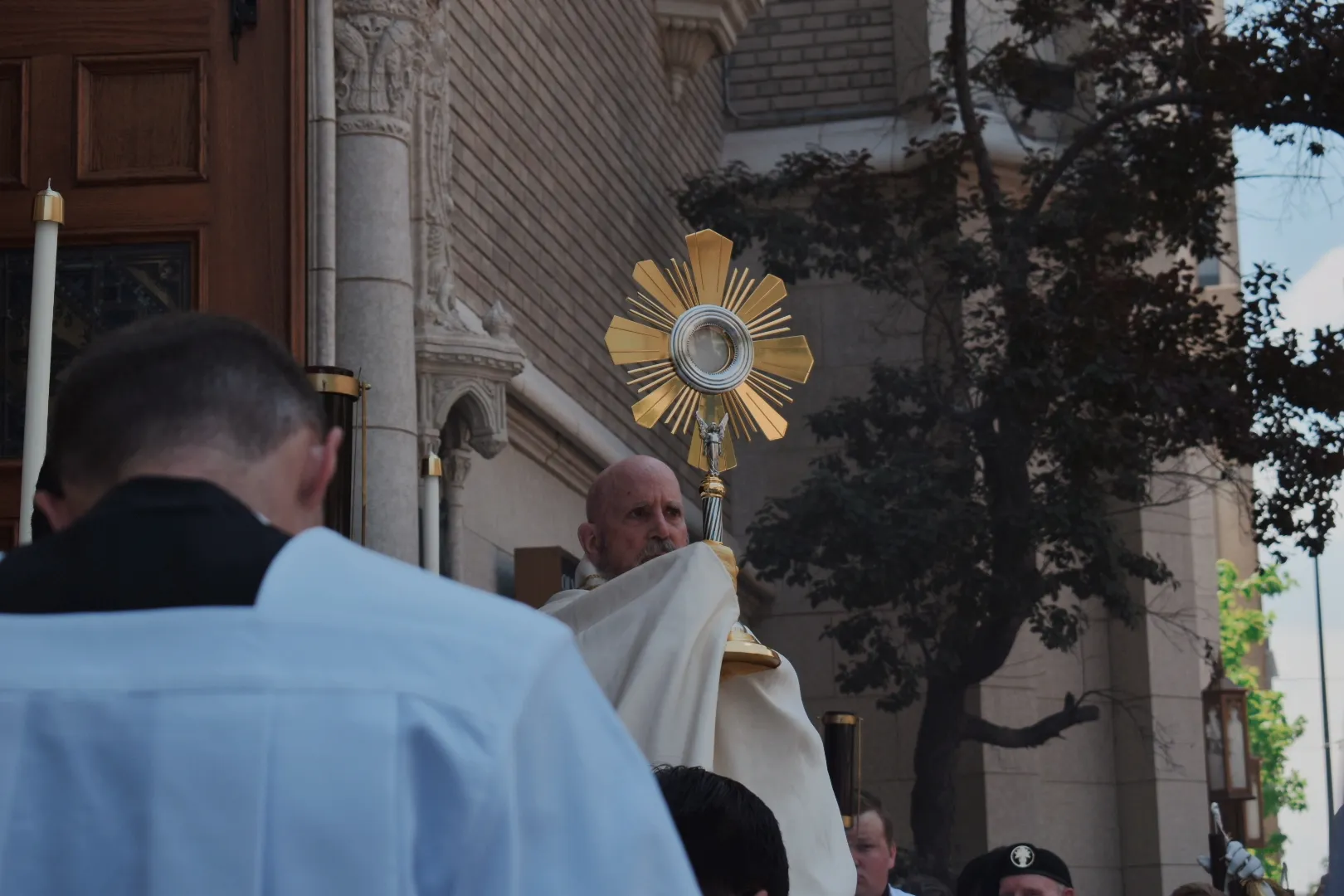
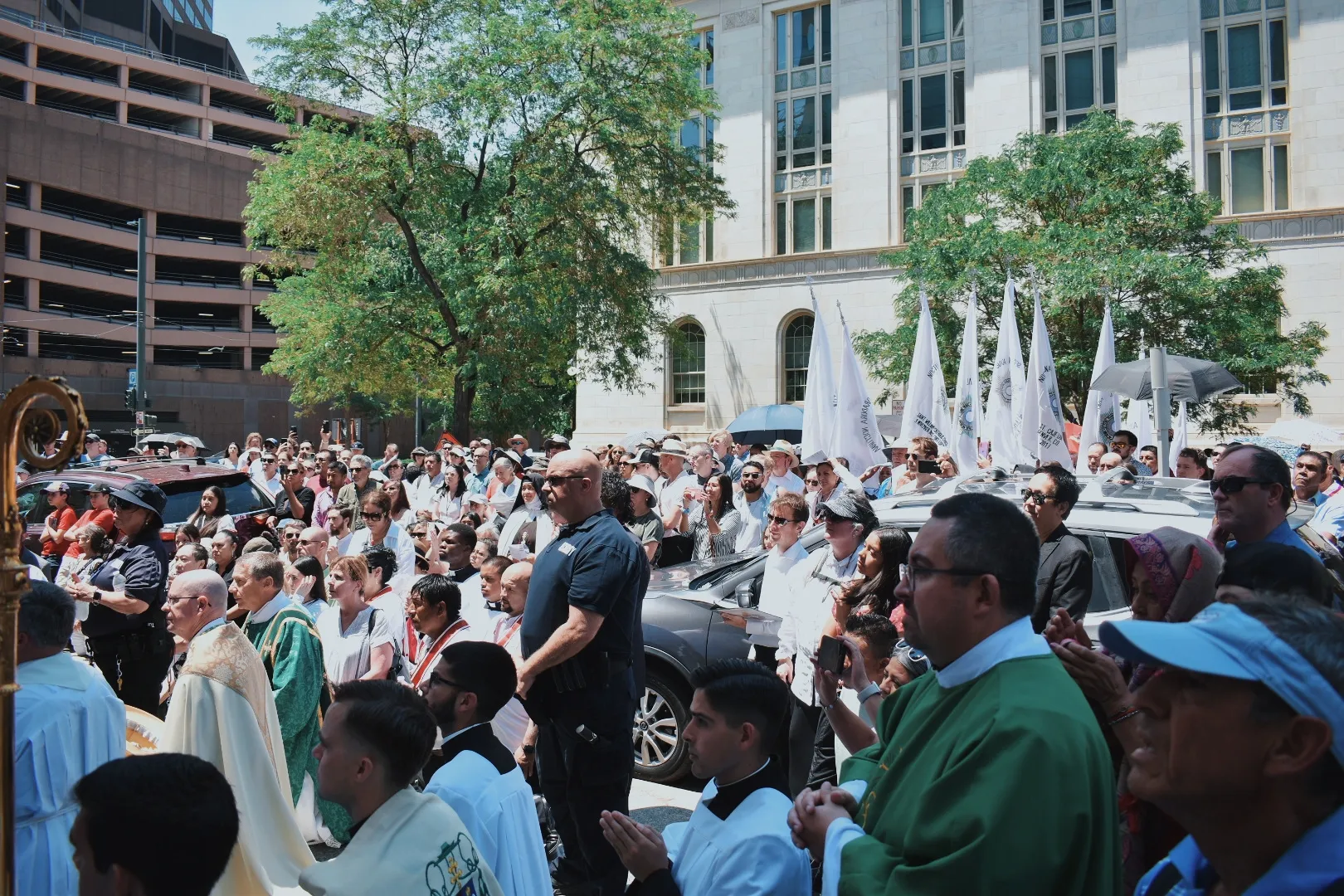
When asked about how the procession affected her, Gravrok said it reminded her of the importance of “liv[ing] our faith unabashedly and in the open, [but] not in an aggressive way.”
“The procession is not loud. It’s not loud, it’s not shouting or throwing it in anyone’s face,” she said. “It’s just reverently living your life, but making sure to do so in a public, observable way so that your life can be a silent witness for the faith.”


